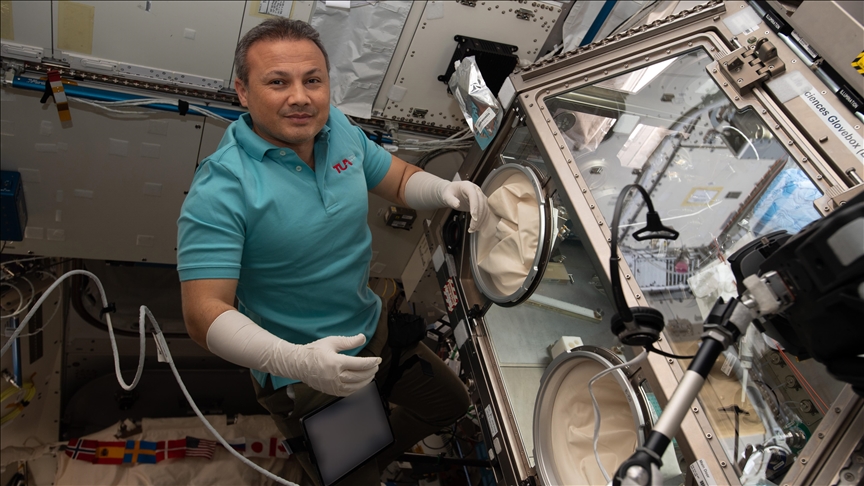

By Anadolu Agency
ANKARA
The first Turkish astronaut, Alper Gezeravci, continued his work Saturday on the International Space Station (ISS) with his seventh experiment, “gMetal.”
Project managers professor Iskender Gokalp from the Scientific and Technological Research Council of Türkiye (TUBITAK) and Deputy Industry and Technology Minister Ahmet Yozgatligil, will experiment with the effects of gravity on the formation of a homogeneous mixture between solid particles and the fluid medium under chemically non-reactive conditions. Therefore, the propulsion systems of the spacecraft will be made more efficient.
Six experiments have been implemented
Gezeravci has implemented six experiments since he reached the ISS.
Gezeravci, “EXTREMOPHYTE,” which investigates the physiological and molecular responses of the endemic halophyte plant named Schrenkiella Parvula, which grows in Tuz Lake, to the space environment, aims to develop new plants to provide nutrients needed by a large number of people who will live in space in the future and to support environmental controls in closed living environments.
It continues its first step, “CRISPR-GEM” and “Expert” experiments, which investigate whether microalgae species can be used in life support systems in space.
Gezeravci will be working on “ALGALSPACE”, which investigates the use of algae in the space environment in oxygen regeneration from carbon dioxide, supplementary food supply, water improvement, life support areas and the detection of vital reactions to living in space through changes originating from the “vocal cord” and the identification of disorders caused by low gravity with sound frequencies.
“VOKALKORD” also continues its experiments.
The “OXYGEN SATURATION” experiment aims to identify differences and discomforts caused by low gravity by calculating the oxygen level of the air given with the support of artificial intelligence.
We use cookies on our website to give you a better experience, improve performance, and for analytics. For more information, please see our Cookie Policy By clicking “Accept” you agree to our use of cookies.
Read More